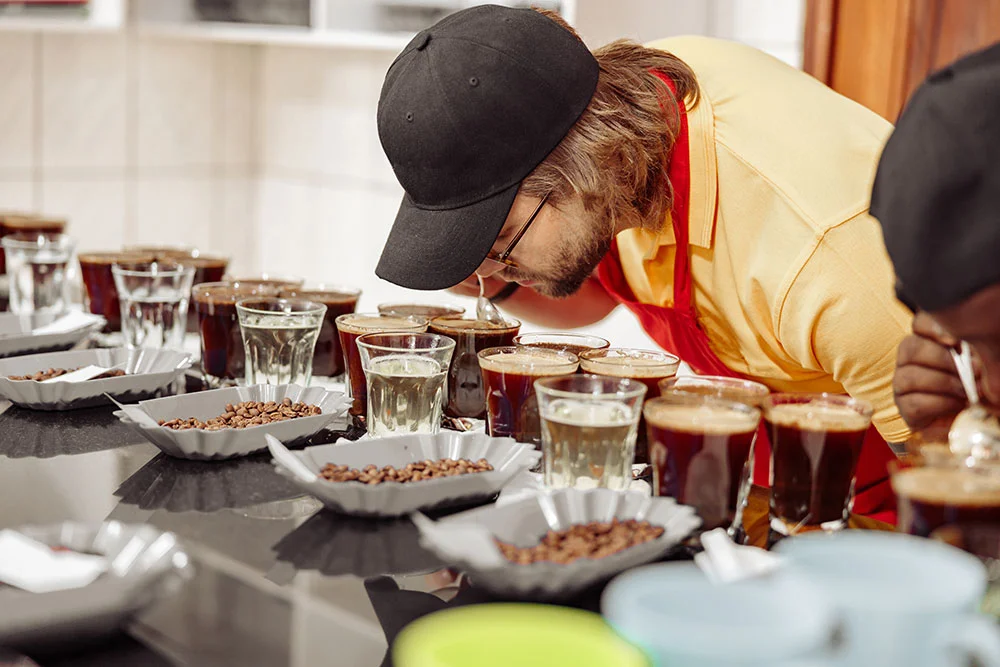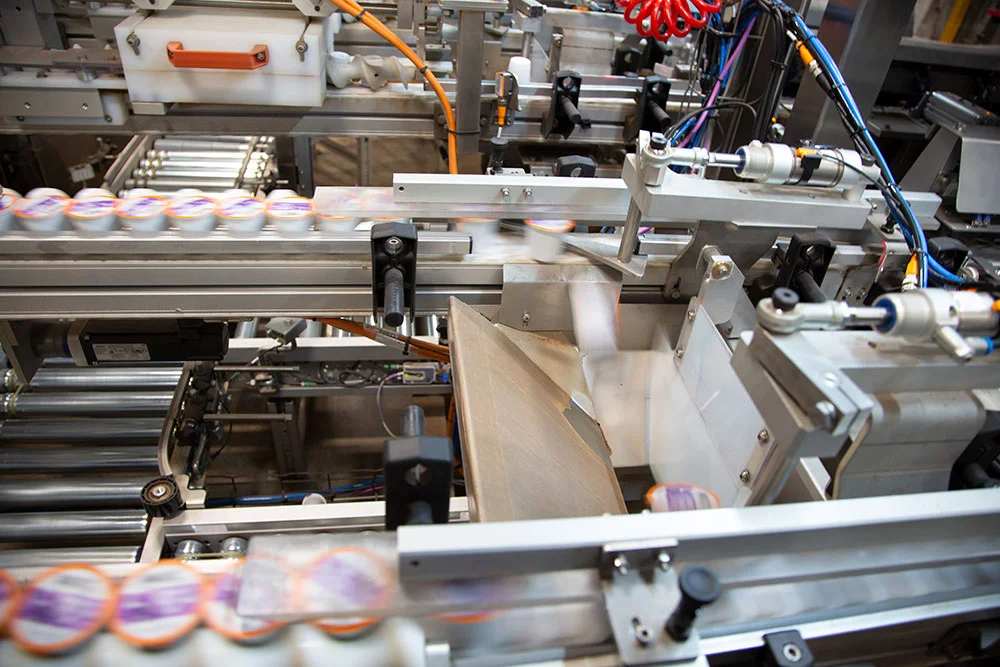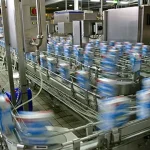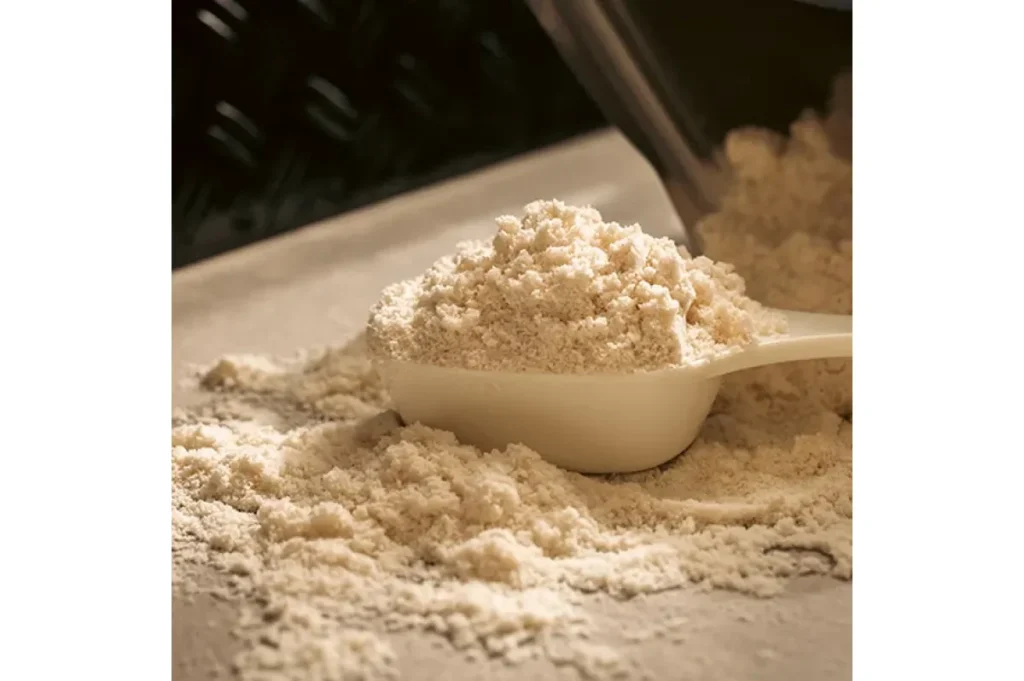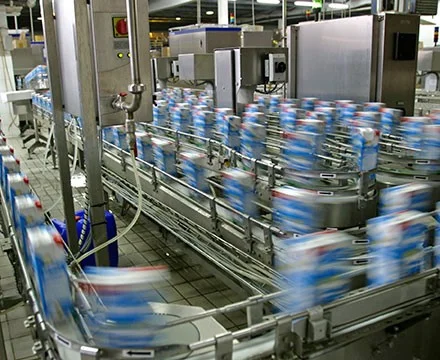K-Cups Here to Stay! Versatile, Convenient, Customizable and Not Just For Coffee
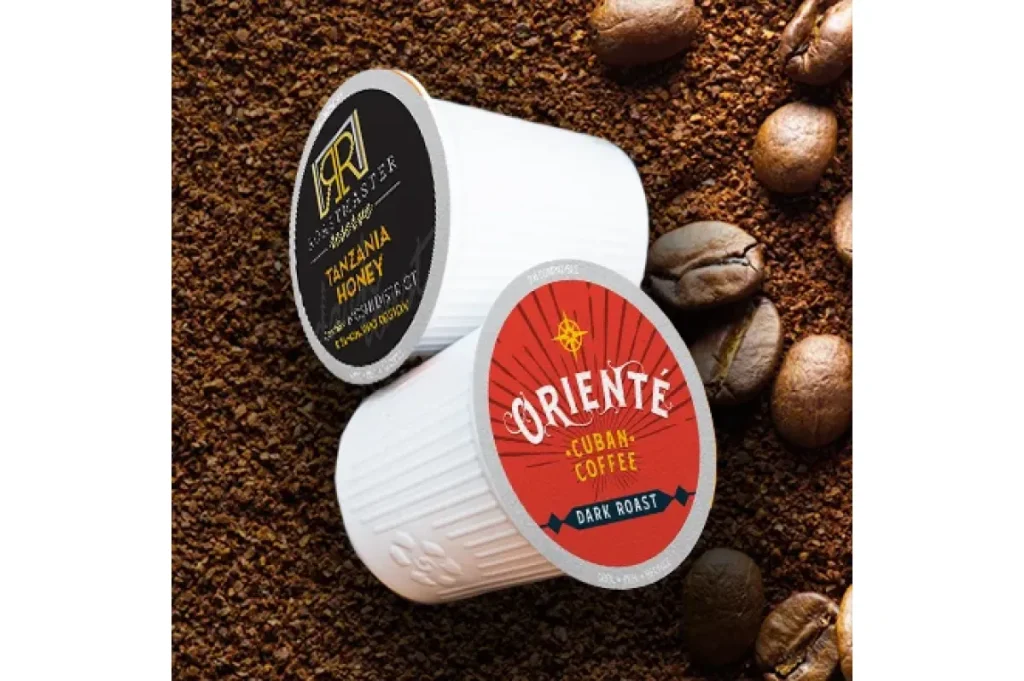
In today’s fast-paced world, convenience and versatility is key, and one of the most popular ways people have embraced convenience is through the use of K-Cups. These small, single-serve pods have transformed the way we enjoy beverages, offering unparalleled versatility when it comes to ingredients and flavors. K-Cups are not just limited to coffee; they can accommodate a wide array of ingredients, from teas and hot chocolates to more innovative blends like flavored waters and even soups. Let’s explore the versatility of K-Cups, their impact on the beverage industry, and how companies like Intelligent Blends are at the forefront of developing K-Cup solutions for businesses.
Keep reading for a full overview on the versatility of K-Cups, or use the links below to go straight to a specific topic.
- A Brief History
- The Versatility of K-Cups
- Coffee Dominates the K-Cup Market
- The Sustainability of K-Cups
- The Business Side of K-Cups
- Statistics and Market Growth
- In Conclusion
A Brief History of K-Cups and Their Growing Popularity
K-Cups were invented by John Sylvan and Peter Dragone in 1992, who founded Keurig to bring single-serve coffee brewing to homes and offices. What began as a simple innovation to brew a single cup of coffee quickly evolved into a multimillion-dollar industry. According to Statista, nearly 42% of U.S. households now own a single-serve coffee maker, such as a Keurig brewer, with a significant portion using K-Cups to fuel their daily caffeine needs. Globally, the single-serve coffee market is growing rapidly, with experts projecting it to reach $20.5 billion by 2026, up from $12.3 billion in 2019.
The Versatility of K-Cups: More Than Just Coffee
While most people associate K-Cups with coffee, their versatility extends far beyond this popular beverage. The beauty of K-Cup technology lies in its ability to be customized and filled with a wide array of ingredients. Creating custom K-Cups offers businesses a unique opportunity to stand out in the competitive single-serve beverage market. By tailoring K-Cups to specific consumer preferences, businesses can attract new customers and build brand loyalty. Here are some popular custom K-Cup ideas that have gained traction across different industries:
1. Gourmet Coffee Blends
- Signature Roasts: Coffee shops and roasters can offer their exclusive coffee blends in K-Cup form. From single-origin roasts to unique flavor profiles (e.g., chocolate, berry, or nutty notes), these custom blends let businesses create a premium coffee experience for customers.
- Small Batch/Artisan Blends: Highlighting small-batch or artisan craftsmanship resonates with consumers looking for quality over mass production.
2. Functional Beverages
- Vitamin-Infused Coffee: Coffee blends enhanced with vitamins like B12, D3, and antioxidants appeal to health-conscious consumers who want more than just a caffeine boost.
- Adaptogen-Infused Coffee or Tea: Blending adaptogenic herbs like ashwagandha or reishi mushrooms with coffee or tea can attract wellness-focused consumers seeking stress relief, immunity boosts, or enhanced mental clarity.
- Protein-Infused Coffee or Tea: Coffee infused with protein powder appeals to fitness enthusiasts looking for a post-workout pick-me-up or meal replacement.
3. Unique Tea Blends
- Herbal and Functional Teas: Customized K-Cups with ingredients like chamomile, hibiscus, ginger, or turmeric cater to the growing wellness tea market. Functional blends can focus on relaxation, digestion, or boosting energy.
- Exotic Tea Blends: Offering international tea varieties like Japanese matcha, Indian masala chai, or South African rooibos can appeal to tea aficionados seeking something beyond standard black or green tea.
4. Flavored Coffees
- Seasonal and Limited-Edition Flavors: Popular during holiday seasons, flavors like pumpkin spice, peppermint mocha, cinnamon roll, or gingerbread can drive customer interest. Seasonal flavors create a sense of urgency, encouraging more sales.
- Dessert-Inspired Coffees: Flavors inspired by popular desserts like crème brûlée, chocolate fudge, or caramel macchiato can give consumers a sweet treat in beverage form without the calories.
5. Hot Chocolate and Specialty Cocoa
- Gourmet Hot Chocolate: Businesses can offer rich, decadent cocoa blends with additions like sea salt caramel, dark chocolate, or peppermint for a premium hot chocolate experience.
- Kid-Friendly Hot Chocolate: Brands can create custom K-Cups for children, with options like marshmallow-infused or sugar-free hot chocolate blends.
6. Cold Brew and Iced Coffee
- Cold Brew K-Cups: With the rising demand for iced beverages, offering cold brew K-Cups that customers can brew over ice is a popular trend. Customized blends like vanilla cold brew or nitro-infused cold brew can appeal to millennials and Gen Z consumers.
- Flavored Iced Coffee K-Cups: Customizing iced coffee with unique flavors like coconut, mocha, or hazelnut creates differentiation in the market.
7. Soups and Broths
- Instant Soup Pods: Brands can expand beyond beverages by offering K-Cup soups such as chicken noodle, tomato, or miso. This option caters to consumers looking for a quick and easy meal.
- Bone Broth K-Cups: Bone broth has gained popularity as a healthy, nutrient-rich beverage. Custom K-Cups with bone broth cater to health-conscious consumers looking for a warming, protein-packed drink.
8. Dessert and Sweet Beverage K-Cups
- Chai Latte and Matcha Latte K-Cups: Offering indulgent latte-style K-Cups for drinks like chai lattes or matcha lattes can be popular for consumers who love café-style beverages but want the convenience of brewing at home.
- Milkshake and Smoothie K-Cups: These can be made using dehydrated fruits or cocoa powders and are perfect for a quick dessert drink.
9. Energy and Hydration K-Cups
- Electrolyte-Rich Beverages: Sports drinks and hydration-focused beverages, such as those packed with electrolytes, can be offered as convenient K-Cups for post-workout hydration.
- Energy Blends: Custom K-Cups containing ingredients like caffeine, taurine, or guarana offer a convenient way to give consumers an energy boost.
10. Alcohol-Inspired K-Cups
- Non-Alcoholic Cocktail Mixes: Custom K-Cups that mimic popular cocktails, like a virgin mojito, piña colada, or margarita, can be brewed over ice and are great for parties and events.
- Coffee Liqueur-Inspired Drinks: Coffee drinks inspired by liqueurs like Irish cream or Kahlua without the alcohol offer an indulgent treat in K-Cup form.
The variety of ingredients that can be packed into a K-Cup is nearly limitless, allowing consumers to experience a wide range of flavors and health benefits from one simple brewing system.
Why Coffee Dominates the K-Cup Market
Despite the wide array of ingredients that can be packed into K-Cups, coffee remains the dominant product. According to market research, coffee K-Cups account for over 80% of total sales in the single-serve pod market. But why is coffee the king of K-Cups?
1. Convenience:
Coffee is one of the most consumed beverages in the world, with 64% of American adults drinking at least one cup a day. K-Cups offer a convenient, mess-free way to enjoy a fresh, high-quality cup of coffee without the hassle of grinding beans or cleaning a coffee pot.
2. Customization:
K-Cups allow users to customize their coffee experience. From choosing the roast level to experimenting with flavors and caffeine content, coffee drinkers appreciate the variety.
3. Quality:
The sealed design of K-Cups ensures that each pod retains its freshness and flavor, leading to a consistent brew every time.
4. Portion Control:
In a world where portion control matters, K-Cups allow consumers to brew a single serving of coffee, reducing waste and preventing overconsumption.
These factors have contributed to the enduring popularity of coffee K-Cups, which continue to dominate the market despite the rising diversity of K-Cup offerings.
The Sustainability of K-Cups: Moving Toward a Greener Future
As the popularity of K-Cups has grown, so have concerns about their environmental impact. Millions of plastic K-Cups are discarded every day, raising alarms about landfill waste. However, the industry is taking steps to address these concerns by focusing on recyclability, compostability, and reusability.
1. Recyclable K-Cups:
Many companies have shifted toward making recyclable K-Cups, where the plastic components can be easily separated and recycled. Intelligent Blends, for example, offers eco-friendly solutions with recyclable pods, ensuring that users can enjoy their coffee guilt-free.
2. Compostable K-Cups:
Compostable K-Cups are another innovation aimed at reducing waste. These pods are made from plant-based materials, which can break down in industrial composting facilities. This option is gaining popularity among environmentally conscious consumers and businesses alike.
3. Reusable K-Cups:
For those looking to cut down on waste even further, reusable K-Cups are a viable option. These pods are typically made from stainless steel or BPA-free plastic and can be filled with the user’s choice of coffee or tea. Once brewed, the pods can be cleaned and reused multiple times, drastically reducing plastic waste.
The Business Side of K-Cups: How Intelligent Blends is Shaping the Future
The K-Cup market continues to expand, with year-over-year growth driven by innovation and consumer demand for convenience. The global K-Cup market is expected to experience significant growth, especially in North America, Europe, and the Asia-Pacific region. This presents a tremendous opportunity for businesses to tap into the growing single-serve market.
1. Custom K-Cup Development:
Intelligent Blends is a leader in custom K-Cup development, helping businesses create personalized blends tailored to their brand. Whether you’re a coffee shop looking to offer your own signature brew or a wellness brand aiming to deliver a functional beverage, Intelligent Blends provides solutions from conception to manufacturing.
2. Private Label K-Cups:
For businesses interested in expanding their product offerings, Intelligent Blends also offers private label K-Cups. This allows companies to sell K-Cups under their own branding, giving them a competitive edge in the marketplace.
3. Sustainability Solutions:
Intelligent Blends is committed to sustainability, offering a range of eco-friendly K-Cup options, including compostable and recyclable pods. This commitment not only meets consumer demand but also aligns with global efforts to reduce plastic waste and promote sustainable practices.
4. Branding Opportunities:
Customized K-Cups enable businesses to showcase their brand through packaging, logos, and personalized blends. It’s a way to create a unique connection with customers, especially for coffee shops, restaurants, or wellness brands.
5. New Revenue Streams:
Selling custom K-Cups provides an additional revenue stream, especially for businesses with a loyal customer base. Coffee shops, for example, can offer their unique blends in K-Cup form for at-home brewing.
6. Catering to Trends:
With growing interest in health and wellness, businesses can capitalize on popular trends like functional drinks, cold brew, and protein-infused beverages.
7. Customer Loyalty:
Offering custom products that reflect consumer tastes and lifestyle choices, such as seasonal flavors or eco-friendly options, builds brand loyalty and can lead to repeat business.
Statistics on K-Cup Ownership and Market Growth
Let’s take a look at some key statistics that highlight the impact of K-Cups on the global market:
- 42% of U.S. households own a single-serve coffee machine. This number has steadily increased as more people seek convenience and quality in their daily beverage choices.
- Over 400 varieties of K-Cups are available, catering to a wide range of preferences, from traditional coffee and tea to more innovative beverages like soups and cold brews.
- The global K-Cup market is projected to grow from $12.3 billion in 2019 to $20.5 billion by 2026, showing a compound annual growth rate (CAGR) of approximately 7%.
- The K-Cup market is not just a North American phenomenon; demand is increasing in international markets, particularly in Europe and the Asia-Pacific region.
These statistics demonstrate the widespread appeal and growing adoption of K-Cups as a versatile and convenient beverage solution.
Conclusion: The Future of K-Cups is Bright
K-Cups have revolutionized the way we consume beverages, offering unparalleled convenience and variety. From traditional coffee and tea to more innovative options like soups and flavored waters, the versatility of K-Cups has no bounds. As sustainability becomes more important to consumers, the industry is making strides toward reducing environmental impact through recyclable, compostable, and reusable options.
Intelligent Blends is a leading provider that offers businesses the opportunity to create custom K-Cups tailored to their audience’s preferences. From developing signature blends to producing sustainable, recyclable pods, Intelligent Blends helps brands capitalize on the K-Cup market while staying environmentally conscious.
In the future, we can expect to see even more innovation in the types of ingredients that can be packed into K-Cups and further advancements in sustainability efforts, making K-Cups a staple not only for coffee drinkers but for a wide range of beverage consumers around the world.
